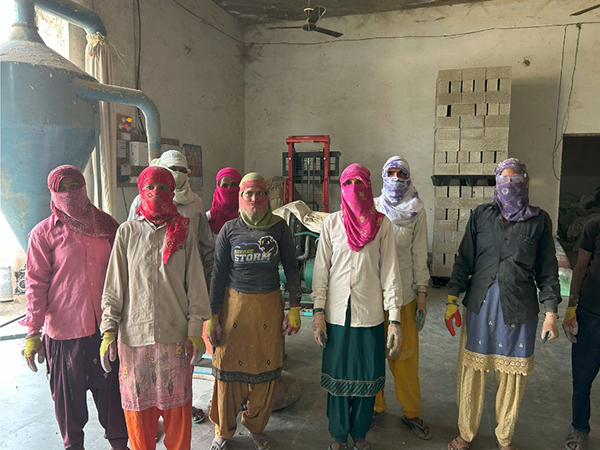UN Chief rejects forced displacement of Gaza residents
May 18, 2025

New York [US], May 18: Antonio Guterres, Secretary-General of the United Nations, has expressed deep concern over reports of Israel's intention to expand its ground operations in Gaza, reiterating the UN's firm opposition to any humanitarian aid mechanism that does not comply with international law and the core humanitarian principles of humanity, impartiality, independence and neutrality.
In remarks delivered at the Arab Summit in Baghdad today, Guterres firmly rejected any attempts at the "repeated displacement of Gaza's population--or any notion of forcibly displacing them outside Gaza."
He issued a strong appeal for an immediate and lasting ceasefire, the unconditional release of all hostages, and the guarantee of unrestricted humanitarian aid access, calling for an end to the blockade.
Turning to the West Bank, Guterres urged the international community not to ignore the "dire situation" there, stating, "Let us be clear: annexation is illegal. Settlements are illegal. A two-state solution remains the only path to sustainable peace." He highlighted the importance of the upcoming high-level conference on the two-state solution, scheduled for June, describing it as "an important opportunity."
On Lebanon, the Secretary-General reaffirmed the importance of respecting Lebanon's sovereignty and territorial integrity, and emphasised the need for the Lebanese government to assert full control over all national territory.
He welcomed commitments by Lebanese officials to ensure that arms remain solely under the control of the state, and encouraged continued progress on reforms. He also supported the deployment of the Lebanese Armed Forces to the south, with the assistance of the United Nations Interim Force in Lebanon (UNIFIL).
Regarding Syria, Guterres reaffirmed the importance of upholding Syria's sovereignty, independence, unity and territorial integrity. He called for strong support for a comprehensive, inclusive Syrian-led political process based on UN Security Council Resolution 2254, aimed at safeguarding the rights and representation of all Syrians, regardless of ethnic or religious background.
He stressed that this path offers the best chance for peace, democracy, and economic recovery, alongside the lifting of sanctions.
Guterres also commended Iraq for strengthening its institutions, resolving outstanding disputes through dialogue, and making strides in humanitarian assistance, sustainable development, and human rights.
He expressed hope that all outstanding issues would be resolved fairly. He confirmed that the UN Assistance Mission for Iraq, which has accompanied the country through its journey, remains committed to concluding its mandate successfully and to its planned withdrawal later this year.
The UN, he affirmed, will continue to support Iraq's government and people toward a future of peace, democracy and prosperity.
On Yemen, Guterres highlighted the severe damage caused by Houthi attacks in the Red Sea to both regional and global economies, stressing the urgent need to halt this cycle of violence.
Addressing the crisis in Sudan, the Secretary-General underscored the need for renewed, coordinated multilateral cooperation to help end the devastating violence, famine and mass displacement across the country.
Regarding Libya, Guterres noted that the United Nations continues to engage with national and international actors to protect the independence of key oversight institutions, remove obstacles to national elections, and chart a course toward long-term stability and prosperity in line with the needs and aspirations of the Libyan people.
He concluded by stressing the importance of unity in Somalia and the need for an inclusive national dialogue.
Source: Times of Oman









